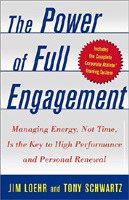You may remember several months ago, I mentioned “needing” to respond to a book entitled Jesus Interrupted. I was asked some questions about it and wanted to be able to respond fairly and honestly. While this article will not be my complete response (that will be several pages long), I would like to offer you an important observation about my journey with this book as I re-read it again this week.
The author is Bart D. Ehrman, a New Testament scholar who teaches at North Carolina University. Any discussion of Ehrman’s Jesus Interrupted, must begin with his stated purpose. While he admits, “the Bible is the most significant book in the history of our civilization,” his goal is to “let the cat out of the bag” regarding what biblical scholars have been saying for years. What he “unashamedly” does is rework, simplify and sensationalize scholarly conclusions that mainline theological schools have been discussing for years.
This sounds harmless until he parallels this information with his personal faith journey from evangelical Christian to “happy agnostic.” The book is a frightening indictment of Christianity for those not trained in the historical critical method of biblical interpretation. For those who have only read the Bible “devotionally” and not “critically,” this sounds like a whole lot of craziness, but it is very real and he regularly spreads his conclusions about the inaccuracy of the Bible and his belief that Jesus was anything, but divine.
I will be glad to share my longer response to this book, but for now, at the core of my analysis of this book is the relieved realization that I studied the same material he studied, yet came away with my faith strengthened and solidified. While we traveled similar pathways of evangelical fervor and the higher forms of biblical criticism, we ended in drastically different places. Ehrman’s faith was destroyed by the contradictions and inconsistencies of the Bible and biblical history. My faith was deepened by the mystery of the Bible’s “humanity” and strengthened by the personal experience of God at work in history.
The longer I live, the more I am convinced that people of faith who seriously study their Bible will either seek to be indoctrinated or educated and the difference looks something like this:
• Indoctrination offers knowledge with boundaries and conclusions. Education insists on knowledge with information and openness.
• The first seeks to memorize and confirm. The second demands exposure and understanding.
• The first is the entrance into a room with perfectly arranged furniture. The second is the invitation into a large house with many rooms awaiting discovery.
• The first is a settling into a familiar place of safety and serenity. The second is an unsettling, but satisfying journey through mystery and hope.
So, this is what preachers do while “multi-basking” on the beach!
